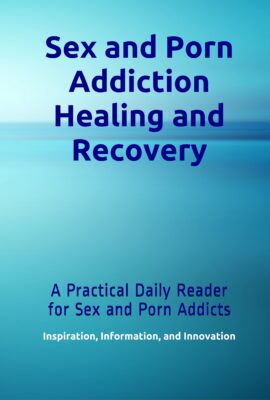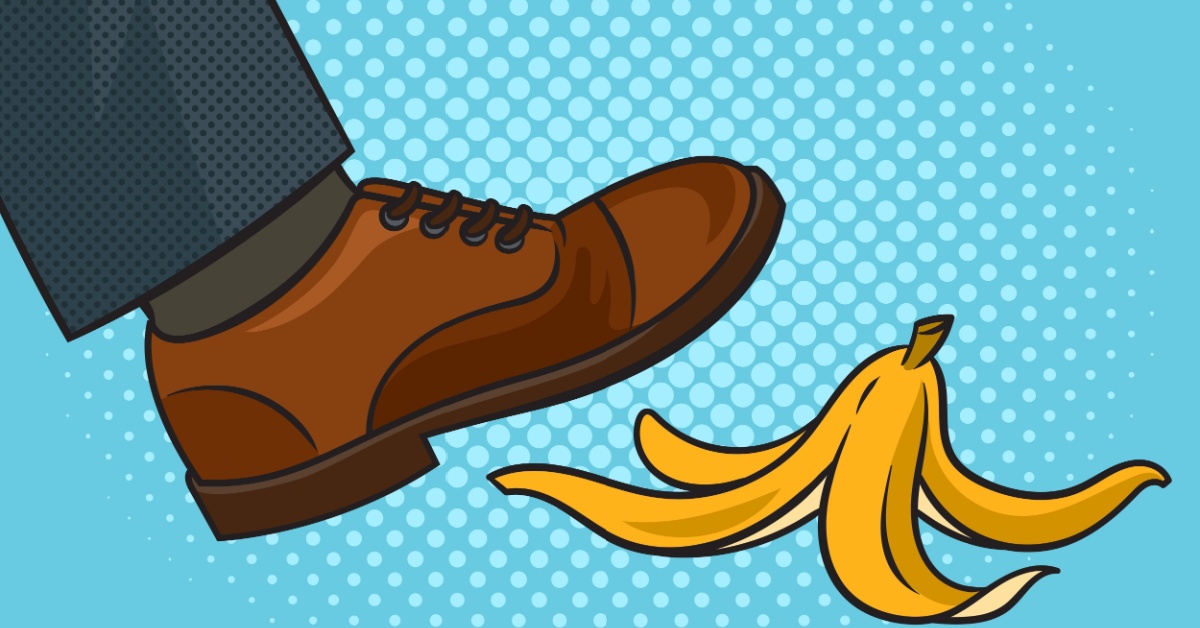Understanding and Learning from Slips and Relapses
 Scott Brassart
Scott Brassart
Sadly, slips and relapses are common in early recovery from sex and porn addiction. Knowing this, it is important for recovering addicts to understand that temporarily backsliding into the psychological pull of addiction is not the end of the world. Nor does it mean they’ve failed. Instead, it is a learning opportunity and a chance to reaffirm and hopefully strengthen their commitment to living differently in the future.
Yes, some addicts are lucky. They create their Circle Plans and stick to them right from the start. However, most experience a few bumps in the road, slipping or relapsing at least once or twice. Either way, the process of recovery and healing is about progress rather than perfection. No addict ever recovers perfectly, nor should any addict ever expect to do so.
Sex and porn addicts should also be aware that slips and relapses are not the same thing.
- Slip: This is a brief, mostly unintended return to addiction. Sometimes an unexpected stressor or a poorly constructed Circle Plan will lead to a slip. A slip can be managed and contained by immediate and honest disclosure. After a slip, recovering addicts must tell others—therapists, 12-step sponsors, accountability partners, and supportive friends in recovery—about the event if they hope to get back on track.
 Relapse: This occurs when an addict keeps a slip secret, choosing to minimize, rationalize, hide, and/or justify their behavior, thereby setting the stage for slips of increasing frequency and intensity. Before long, the addict is back where they started: struggling with a full-blown, out-of-control addiction.
Relapse: This occurs when an addict keeps a slip secret, choosing to minimize, rationalize, hide, and/or justify their behavior, thereby setting the stage for slips of increasing frequency and intensity. Before long, the addict is back where they started: struggling with a full-blown, out-of-control addiction.
Common warning signs for slips and relapse include:
- Overconfidence: “This is going really well. Maybe I have the problem licked and I can let my guard down.”
- Denial: “See, I can stop my porn use without any trouble. Now that I’ve proved this, I can look at it like a normal person without worrying about consequences.”
- Isolation: “I can handle this on my own. I don’t need to go to therapy or 12-step meetings, and I don’t need to be in constant contact with other recovering addicts.”
- Making Excuses: “I know that being alone with my computer is a danger zone, but I need to stay late at the office to finish this important project.”
- Setting Up Slippery Situations: “I know that unstructured free time is a huge trigger for me, but I need some downtime. So, this weekend, when my wife and kids are away, I’m just going to relax instead of scheduling a green circle activity.”
- Ignoring or Devaluing Feedback from Supportive Others: “The people in my therapy group and my online workgroup just want to control me. The stuff they want me to do might work for them, but they really don’t understand my situation.”
- Rationalizing: “It’s OK for me to act out when I’m traveling for work. My rules for sobriety don’t count when I’m in a different state.”
As stated above, slips and relapses are not the end of the world. Rather than looking at these events as disasters with no solution, recovering sex and porn addicts (and their support networks) should view them as learning opportunities. Setbacks should be treated as problems to be explored and learned from rather than personal failures.
After a slip or relapse, addicts, working with knowledgeable others, can explore the feelings and thoughts that led to their backslide, identifying the trigger or triggers that pushed them over the edge and devising ways in which they can handle themselves differently in the future if the same or a similar situation arises. They should also explore other situations in which they might slip, planning for ways to cope there as well. If necessary, they can tighten up their Circle Plan.
Slips Still Hurt!
Though slips and relapse are quite common in the early stage of recovery, this does not mean that recovering sex and porn addicts should feel like they have permission to go ahead and slip. Even though they should not be denigrating themselves after a slip, they will need to have empathy for a partner who’s been betrayed by them yet again and is now quite angry.
Consider the story of Kelsie, the long-time partner of a porn addict.
Kelsie knew for years that her partner used porn, though she had no idea about the extent or nature of his porn use until she accidentally stumbled upon his search history while trying to find a website she’d visited the week before. She was shocked to learn that all the times her husband was supposedly working late, he was actually spending hour after hour looking at porn, often missing family dinners and causing her to go to be alone many nights.
When Kelsie confronted her husband, he admitted what he’d done and agreed to go to treatment for pornography addiction. He did well in rehab and returned home, where he saw his CSAT and attended 12-step meetings regularly. He even got a sponsor and started working the steps.
Several months later, just as Kelsie was starting to feel as if things were getting back to normal, she learned that her husband, during a stressful time at work, had started viewing “not porn” imagery of women in swimsuits. He’d been justifying this behavior to himself by saying it wasn’t “real porn,” so he wasn’t causing any problems. Kelsie, of course, felt differently.
For Kelsie, the walls came crashing down all over again. The nature of what her partner was looking at did not matter to her. What mattered was that he was hiding and lying and betraying her trust again. All the trauma she experienced when she first learned about his behavior came back—but with an extra layer of pain because this time he was betraying her with full knowledge of how much it would hurt.
Like most betrayed partners in this situation, Kelsie began to question everything about her relationship. Was her partner really in recovery? Could her partner ever rebuild trust with her? Should she give him another chance, or should she just walk away? With this, Kelsie spiraled emotionally just as badly as when she first discovered his addiction.
With or without discovery by a partner, any sex or porn addict in the midst of a slip must immediately get honest about what’s going on, confessing to their therapist, 12-step sponsor, and social support group. Recovering addicts establish these loving and empathetic connections for a reason, and now is a great time to use them. If an addict in the middle of a slip is unable or unwilling to ask for help, their downward slide will almost certainly continue, becoming a full-blown relapse. If, however, that person reaches out and asks for assistance, they can move back into sobriety and healing.
* * * * * * * * * *
If you or someone you care about is struggling with sex or porn addiction, help is available. For porn addicts, Seeking Integrity offers a low-cost online workgroup series. Click HERE for information. We offer a similar workgroup series for sex addicts. Click HERE for information.
